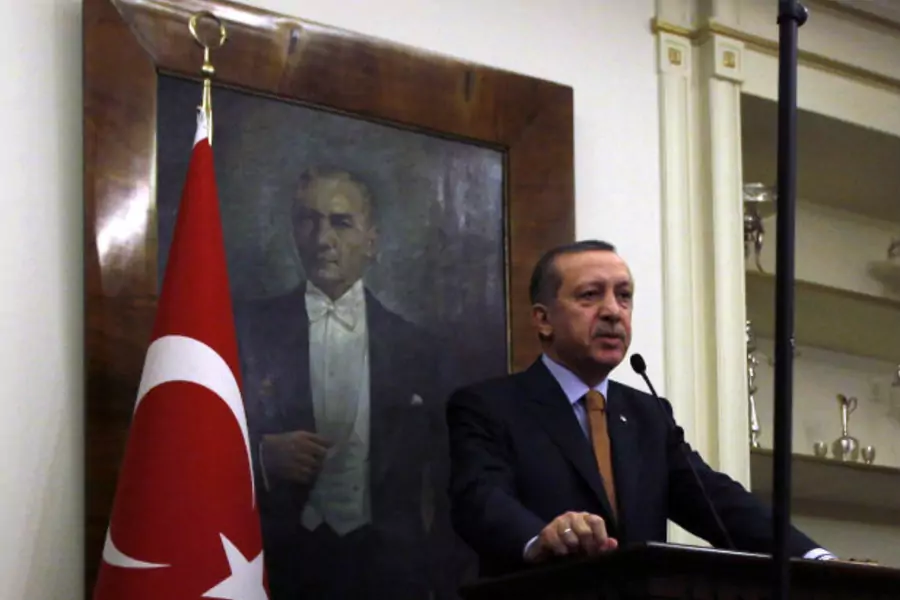More on:
A recent poll conducted by YouGov asked respondents across the Arab world what type of political system would be best suited for Egypt, Tunisia, and Libya—countries where the governments had been overthrown during the Arab uprisings. The results are startling.
Some three-fourths of the Arab respondents reportedly believe the Turkish political system would be “a right model” for the “new Arab states” to emulate. The “Saudi model” barely polled in the double digits, though it is still ahead of the U.S. model.
The pollsters did not define their terms, so it is not clear what exactly people believe they are supporting when they refer to the Turkish model. The best insight into that comes with the respondents’ explanations for their preferences. The three top reasons cited were: 1) cultural affiliation: respondents cited Turkey as very close to the Arab world in terms of culture, religion, and traditions; 2) international respect: those who favored the Turkish model argued that its political system has earned the Eurasian republic international respect; and 3) the role of religion, suggesting that the Turkish model involves Islam in politics. Somewhat surprisingly, less than a quarter of Turkey’s Arab fans cited its democracy as reason for wanting its system to be adopted in the Arab world.
Interestingly, even though the majority of those polled cited cultural affinities between Arabs and Turks, very few saw similarities between the Ankara regime and most Arab regimes. That is, the Arab respondents saw a suitability of the Turkish model, even though they see it as rather different from the regimes in the Arab world. That does not indicate a very high degree of satisfaction with the available models in the Arab world.
What can we conclude from these findings? First, the poll suggests that time has indeed moved on in the Arab world. A century after the hostile breakup of the Ottoman order, the Arab world has apparently shed its longstanding grudge against its former occupier. Attitudes have evolved. The Arab nationalism that led the backlash against Ottoman rule has run its course.
Second, the findings rebut determinist views of the Arab world as forever destined to harbor certain resentments. Attitudes can and do change over time in the Arab world, as they do elsewhere. The success of attractiveness, and the attractiveness of success, both seem to be at play when it comes to Arab attitudes toward Turkey.
Third, and as the Arab uprisings have suggested, many Arab peoples do not, generally speaking, see attractive models of governance within their midst. That Arabs are more attracted to the so-called Turkish model reflects displeasure with existing Arab forms of government. It should serve as a sobering wake-up call to today’s Arab rulers, if any such call is needed more than one year since the outbreak of the region-wide Arab uprisings.
To be sure, this is but one poll, and over-extrapolation is dangerous. Yet it is noteworthy that with the turmoil sweeping the Arab world now in its second year, Arabs are looking outward, not just inward, for ideas and role models, contrary to what so many commentators about the region have been suggesting.
More on:
 Online Store
Online Store

